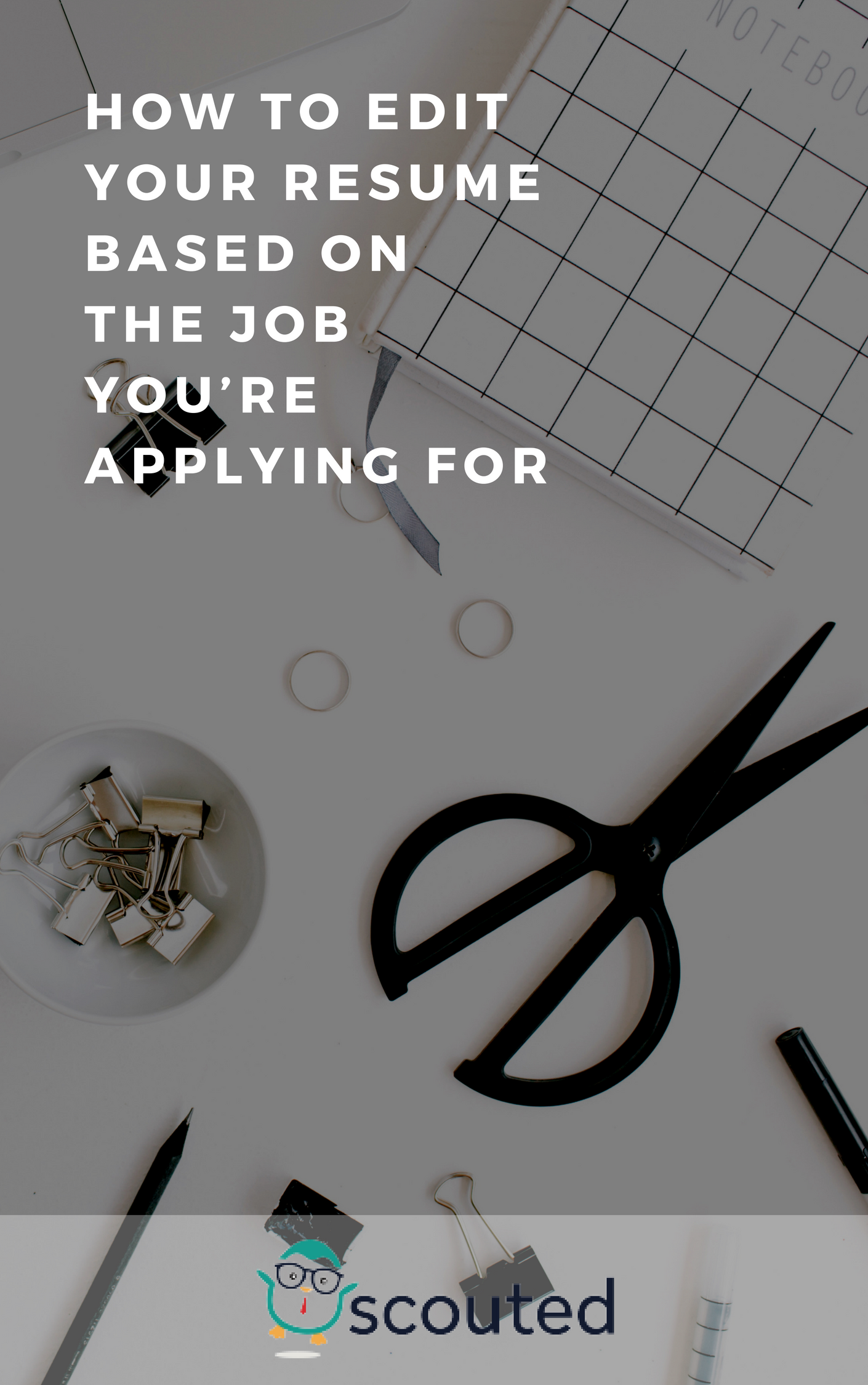Searching for a job is a lot like dating. You’re (hopefully) not going to take all your first dates to the same place, do the same things, and eat at the same restaurants. God forbid the word got out that you were the least creative first date ever, not to mention the fact that- unless you’re weirdly obsessed with bowling- you’re bound to get bored after going on the same first date time after time.
The same is true when applying for jobs. If you send the same copy-and-paste resume to every job that you’re even remotely interested in, you’re bound to get bored. What’s worse is that the hiring managers who read your copy-paste resume will know you’re bored too. By now they’ve probably read through more resumes than they will be able to tell whether a candidate is truly interested in their company and the position up for hire or if they’re just trying to get their resume into the hands of as many hiring managers as possible, hoping to get a nibble here and there. Yes, taking the time to edit and tailor your resume to the job you’re applying takes more time and work, but the ROI you’ll see is worth it!
Also on Mediabistro


Be keyword specific
Take some time to carefully comb through the description of the job you’re going to be applying for. What words pop out over and over again? Does the word innovative pop up throughout? Then expect the company to be looking for someone who isn’t afraid to roll up their sleeves and try something new. If you decide you can be that person, then be sure to sprinkle that word within your resume just enough to let the hiring manager understand you’re on the same page- but don’t go overboard.
What about the word data? If a company seems to be more data driven, yes, use that word within your resume and past work experience descriptions but ALSO share how you were able to benefit your last company in measurable ways. Use numbers wherever possible as they will draw the reader’s eye to your specific skills and show that you care about the results you’re able to produce. Instead of saying “Increased conversion rates,” try to say, “Increased conversion rates by 10%.” Not only will that “10%” pop off the page, you’ll be able to show your potential employer that you are results driven and effective.
Along with using keywords that are job-specific, think about what “soft skills” keywords that the company might be attracted to. If you’re new to this field, also do some research on common industry buzzwords, certifications, etc. If you need more ideas for finding keyword inspiration, check out these tips for identifying what ones to use in your resume.
Download our preferred resume template here!
Read the company website
A candidate can learn a ton about a company by wading through their website. Read through pages like their “About Us” or “Our Mission” page and read when and why the company was founded. Take notice of the company’s voice and tone in their writing, it might just reflect their personality as a whole? Do they sound casual and laid back or established and classy? This might not be a perfect indicator of company culture, but it could help. Based on what else you know about the company, use the way they write their job description and the copy on their website and filter through your own resume to make it seem as though the two go hand in hand. Forbes says that job recruiters are much more likely to pursue a candidate when they show a special interest or history with a company. If a candidate takes the time to incorporate the company’s values within their cover letter, it will help them stand out from other candidates who didn’t “do their homework.”
Filter the work experience you choose to show
Although it may seem like a good idea to list every single job you’ve had in the past on your resume, just in case a piece of experience might seem useful to the hiring manager, we want to encourage you to not do that. Although you might be able to fudge how working as a barista helped you to gain customer relations experience, if you have 2-3 other jobs on your resume that more directly correlate with the position you’re applying for so make sure to put priority on those jobs first. If it’s not explicitly clear why a job on your work history is relevant to the job you’re applying for, consider leaving it off. If you have volunteer experience or an internship that’s more relevant, prioritize that instead. If your resume has too much clutter from irrelevant work experience, you may cause the hiring manager to miss what is important on your resume.
[sc name=“Newsletter”]
Make sure your cover letter is specific and authentic
Whether or not you feel like you’re able to filter your work experience based on the job you’re applying for, you should always cater your cover letter to the company (or even the person) you’re writing to.
Ever had the terrible feeling that you forgot something after hitting “Submit” on your application only to look back and realize that you left the name of the last company you applied to on the cover letter of the company you just applied to? Not good. Don’t let THAT be the reason you get turned away from a job. When writing your cover letter, make sure you’re not simply copy and pasting for each new job and only changing the company name. Each company will have their own values and each role, even roles with the same title, will be somewhat unique. Be sure your cover letter reflects how you’d be a perfect fit specifically for each company, specifically for each role. Distinctively write why you’re excited about each new company. Although this sounds like more work- and it is- it shouldn’t be that hard to think about why you’d be excited to work at each company. If it is, it might be better to move on to a company where it’s easier to understand why you’d be excited to work for them.
If you’re struggling with knowing what to put on your cover letter, just remember that, like your resume, your cover letter should tell a story. “Ideally, the story that drives your resume will focus on a need at the company you’re applying for.” says Satjot Sawhney of Loft Resumes. Check out this post and this post for how to act like a freelancer and own the position you’re applying for.
Now it’s your turn! What work experience did you choose to leave off your resume? What are the best insights you’ve gotten from reading a company’s website before applying? Share your thoughts in the comments below!




.png)



